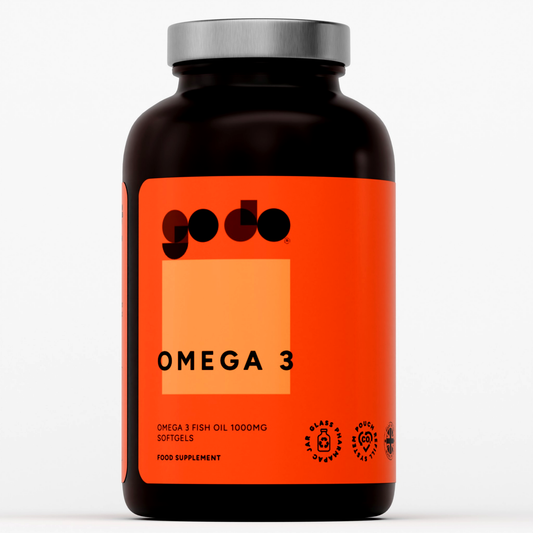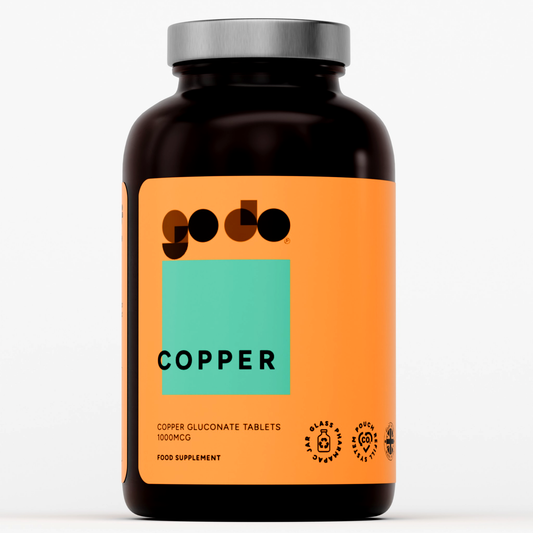Introduction to Polyphenols
Polyphenols are chemical compounds found in plant-based foods with antioxidant and anti-inflammatory properties, offering numerous health benefits. Dietary polyphenols are a major group of plant-based nutrients that are abundant in many foods and contribute significantly to overall nutrition.
A diet rich in polyphenols can help prevent many chronic diseases by supporting overall health benefits.
Polyphenol rich diets include a variety of plant foods, such as fruits, vegetables, whole grains, legumes, and other polyphenol rich plants.
Research suggests that polyphenols play a crucial role in maintaining a healthy balance, supporting human health, and preventing diseases.
Polyphenol Rich Food Groups

Fruits and Vegetables
- Fruits and vegetables are rich in polyphenols, especially those with dark colors like berries, leafy greens, and bell peppers. To maximize polyphenol intake, eat fruits of various colors, focusing on natural, vibrant options.
- Eating a variety of many plant foods, including fruits and vegetables, can provide a range of polyphenols, including phenolic acids and flavonoids.
- Berries, in particular, are high in polyphenols and have been shown to have numerous health benefits, including reducing inflammation and improving heart health.
- Other polyphenol-rich food sources include fruits and vegetables such as apples, onions, and tomatoes.

Nuts and Seeds
- Nuts and seeds are good sources of polyphenols, including almonds, sunflower seeds, and flax seeds.
- These foods are also rich in healthy fats and dietary fiber, making them a great addition to a polyphenol-rich diet.
- In addition to polyphenols, nuts and seeds contain other compounds such as fiber and lectins, which can impact digestion and nutrient absorption.
- Polyphenol supplements are available, but it’s recommended to get polyphenols from natural foods rather than relying on a polyphenol supplement.
- Nuts and seeds can be added to oatmeal, yogurt, or salads to increase polyphenol intake.

Legumes and Grains
- Legumes, such as lentils and chickpeas, are rich in polyphenols and have been shown to have numerous health benefits, including reducing the risk of heart disease. Legumes and grains are also good sources of phenolic acid, a type of polyphenol found in many plant-based foods.
- Whole grains, such as brown rice and quinoa, are also good sources of polyphenols and can help lower blood sugar levels.
- Legumes and whole grains are also rich in dietary fiber, protein, and other essential nutrients. The polyphenols and fiber in legumes and whole grains can help support the growth of beneficial gut bacteria, which is important for maintaining a healthy gut microbiome.
- Including legumes and whole grains in your diet can help you maintain a healthy diet rich in polyphenols.

Herbs and Spices
- Herbs and spices, such as turmeric and cinnamon, are rich in polyphenols and have been used for centuries for their medicinal properties.
- These foods have anti-inflammatory properties and can help reduce the risk of chronic diseases, such as heart disease and neurodegenerative diseases.
- Adding herbs and spices to your meals can increase polyphenol intake and add flavor without adding salt or sugar.
- Other polyphenol-rich herbs and spices include ginger, rosemary, and thyme. Chili peppers are another polyphenol-rich spice, known for their capsaicinoid content and potential health benefits.
Beverages
Coffee and Tea
- Coffee and tea are rich in polyphenols, particularly green tea, which has been shown to have numerous health benefits, including reducing the risk of heart disease and certain cancers.
- Polyphenols in tea can promote the growth of beneficial bacteria in the gut while inhibiting harmful bacteria, supporting digestive health.
- Green tea polyphenols have been shown to have anti-inflammatory properties and can help reduce blood sugar spikes.
- Coffee has also been shown to have health benefits, including improving cognitive function and reducing the risk of certain diseases.
- Drinking coffee and tea in moderation can be a healthy addition to a polyphenol-rich diet.

Red Wine
Red wine is widely recognized for its high polyphenol content, particularly resveratrol, a compound that has been linked to a range of health benefits. The polyphenols in red wine are derived from the grape skins, seeds, and stems, and their levels can vary depending on grape variety, soil conditions, and winemaking methods. Research suggests that moderate consumption of red wine—up to one glass per day for women and up to two for men—may support heart health by improving blood flow and reducing the risk of cardiovascular diseases. These antioxidant-rich compounds can also help protect against chronic diseases by neutralizing harmful free radicals and reducing inflammation. However, it’s important to enjoy red wine in moderation as part of a balanced, healthy diet to maximize its potential health benefits without increasing other health risks.
Polyphenol Content
The polyphenol content in foods and beverages can differ greatly, making it helpful to know which choices are naturally rich in these beneficial plant compounds. Generally, fruits, vegetables, whole grains, and legumes are high in polyphenols, especially when consumed in their whole, unprocessed forms. Herbs and spices such as cloves, star anise, and turmeric are also among the most concentrated sources of polyphenols, adding both flavor and health benefits to your meals. When it comes to beverages, green tea, coffee, and red wine stand out for their high polyphenol content. Choosing foods and drinks that are rich in polyphenols can help you build a diet that supports overall health and wellbeing, while processed and packaged foods tend to be much lower in these protective compounds.
Benefits of Polyphenols
- Polyphenols have numerous health benefits, including reducing inflammation, improving heart health, reducing the risk of certain cancers, and supporting the immune system.
- Polyphenols can also help regulate blood sugar levels and improve insulin sensitivity.
- The antioxidant properties of polyphenols can help protect against harmful free radicals. Chronic inflammation is linked to an increased risk of chronic diseases.
- Including polyphenol-rich foods in your diet can help you maintain a healthy balance, lower heart disease risk, and reduce the risk of many chronic illnesses.
Heart Health
Polyphenols can help reduce the risk of heart disease by lowering blood pressure, improving blood lipid profiles, and preventing blood clots by reducing excess platelet aggregation.
The anti-inflammatory properties of polyphenols can also help reduce chronic inflammation, which is a significant risk factor for heart disease, coronary heart disease, and cardiovascular disease.
Blood clots polyphenols and prevent blood clots polyphenols are important because they may reduce the risk of heart-related conditions by inhibiting excess platelet aggregation, which can otherwise lead to dangerous blood clots and increase the risk of strokes and thrombosis.
Eating a diet rich in polyphenols can help you maintain healthy blood vessels and reduce the risk of developing heart disease.
Other lifestyle choices, such as regular exercise and not smoking, can also help reduce the risk of heart disease.
Blood Sugar Management
- Polyphenols can help keep blood sugar levels stable by improving insulin sensitivity and reducing blood sugar spikes.
- The antioxidant properties of polyphenols can also help protect against oxidative stress, which can contribute to the development of insulin resistance.
- Eating a diet rich in polyphenols can help you maintain healthy blood sugar levels and reduce the risk of developing type 2 diabetes.
- Other dietary tips, such as choosing whole grains and lean protein sources, can also help regulate blood sugar levels.
Brain Health
- Polyphenols can help reduce the risk of neurodegenerative diseases, such as Alzheimer’s and Parkinson’s, by reducing inflammation and oxidative stress.
- The antioxidant properties of polyphenols can also help protect against harmful free radicals, which can contribute to the development of neurodegenerative diseases.
- Eating a diet rich in polyphenols can help you maintain healthy brain function and reduce the risk of cognitive decline.
- Other lifestyle choices, such as regular exercise and social engagement, can also help reduce the risk of neurodegenerative diseases.

Food Preparation
- Food preparation can affect the polyphenol content of foods, with cooking and processing reducing polyphenol levels.
- Eating raw or lightly cooked foods can help preserve polyphenol content and ensure you get the most health benefits.
- Using healthy cooking methods, such as steaming or roasting, can also help preserve polyphenol content.
- Adding polyphenol-rich herbs and spices to your meals can also increase polyphenol intake.
Dietary Tips
- Eating a variety of polyphenol-rich foods can help you maintain a healthy diet and reduce the risk of chronic diseases. While isolated polyphenols are available in supplement form, consuming polyphenols from whole foods is generally more beneficial due to the presence of other nutrients and the natural food matrix.
- Choosing whole, unprocessed foods can help preserve polyphenol content and ensure you get the most health benefits.
- Drinking green tea and coffee in moderation can also be a healthy addition to a polyphenol-rich diet. Cocoa powder and dark chocolate are also excellent sources of polyphenols, with dark chocolate containing significantly more polyphenols than milk chocolate.
- Other dietary tips, such as choosing lean protein sources and healthy fats, can also help reduce the risk of chronic diseases. Extra virgin olive oil and olive oil are rich in polyphenols and healthy fatty acids, making them excellent choices for a balanced diet.

Lifestyle Choices
Adopting a lifestyle that emphasizes polyphenol-rich foods and beverages can offer a wide range of health benefits, from supporting heart health and brain function to reducing the risk of chronic diseases. To make the most of these benefits, focus on a healthy diet filled with a variety of plant-based foods, such as fruits, vegetables, whole grains, nuts, and legumes. Staying hydrated, engaging in regular physical activity, and managing stress are also key components of a healthy lifestyle that complements a polyphenol-rich diet. Limiting processed and packaged foods, which are typically low in polyphenols and high in unhealthy additives, can further enhance your wellbeing. By making these choices, you can enjoy the protective effects of polyphenols and support your overall health for the long term.
Nutrition and Wellness
- Polyphenols can help support overall nutrition and wellness by reducing inflammation and improving heart health.
- The antioxidant properties of polyphenols can also help protect against harmful free radicals and reduce the risk of chronic diseases.
- Eating a diet rich in polyphenols can help you maintain a healthy balance and reduce the risk of many chronic illnesses.
- Other lifestyle choices, such as regular exercise and stress management, can also help support overall nutrition and wellness.












